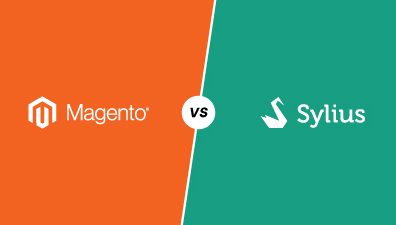In the dynamic world of eCommerce, selecting the right platform is a critical decision that can determine the success or failure of an online business. Among the plethora of options available today, Magento vs Salesforce Commerce Cloud stand out as two of the leading solutions, each with its own strengths, weaknesses, and unique offerings. This comparison aims to delve into the intricacies of Magento vs Salesforce, shedding light on their market positions, key features, and how they cater to different business needs.
This blog post aims to provide a comprehensive comparison between Magento vs Salesforce Commerce Cloud, helping business owners, eCommerce managers, and digital strategists make an informed decision. By evaluating each platform’s key features, market position, pricing, and real-world application through case studies, we endeavor to highlight the critical considerations that should guide your platform selection process. The right eCommerce platform can empower your business to achieve its revenue objectives, foster customer loyalty, and navigate the complexities of the online retail landscape with confidence. So let’s settle the debate: Salesforce vs Magento.
Table of Contents
Magento vs Salesforce Commerce Cloud: Overview
Magento: A Comprehensive Overview
Magento is an open-source eCommerce platform that provides online retailers with a flexible shopping cart system, as well as control over the look, content, and functionality of their online store. Built on open-source technology, Magento offers powerful marketing, search engine optimization, and catalog-management tools. It is designed to be completely scalable and backed by an extensive support network, making it a popular choice among businesses of all sizes.
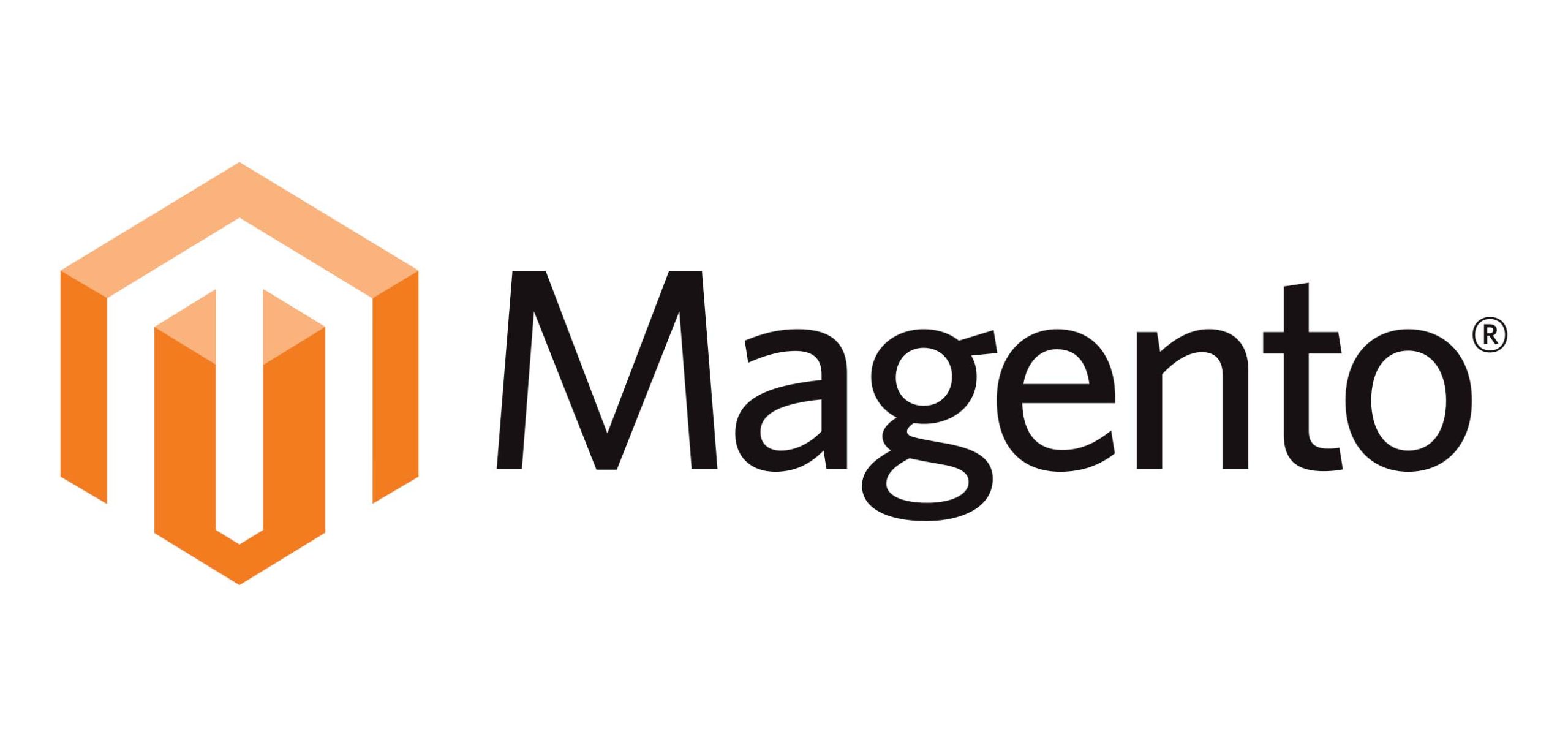
Magento was launched in 2008 and has since evolved to become one of the most popular eCommerce platforms worldwide. It was acquired by Adobe Inc. in 2018 and integrated into Adobe’s Commerce Cloud, further enhancing its capabilities with features like AI-powered insights and a more extensive suite of tools. Magento comes in two editions: Magento Open Source, which is free to use and allows developers to customize the code according to their needs, and Magento Commerce, a premium, cloud-hosted solution designed for large enterprises with additional features and support.
Magento holds a significant position in the market, powering approximately 12% of all eCommerce sites worldwide. This wide adoption can be attributed to its flexibility, robust feature set, and scalability, which make it suitable for businesses ranging from small startups to large enterprises. Some of the world’s leading brands, including Nike, Ford, and Coca-Cola, utilize Magento for their eCommerce operations, showcasing its capability to handle high volumes of traffic and complex product inventories.
Pros of Magento
- Flexibility and Customization: Magento’s open-source nature allows for extensive customization, enabling businesses to tailor their sites to their unique needs and preferences.
- Scalability: Magento can scale with your business, managing large product catalogs and high customer traffic volumes without compromising performance.
- Feature-Rich: It comes packed with features for managing products, customers, orders, and much more, without the need for extensive plugins or add-ons.
- Community Support: A vast community of developers and users contribute to the Magento ecosystem, providing valuable resources, extensions, and third-party integrations.
- SEO Friendly: Magento has excellent SEO capabilities, helping businesses rank higher in search engine results and attract more organic traffic.
Cons of Magento
- Complexity: The platform’s extensive features and customization options can be overwhelming for beginners or small businesses without technical expertise.
- Resource Intensive: Magento can be demanding on server resources, especially for larger sites, which may require more investment in hosting solutions.
- Cost: While Magento Open Source is free, Magento Commerce comes with a significant price tag, making it less accessible for small businesses. Additionally, customizations and extensions can add to the overall cost.
- Time-Consuming for Customizations: Due to its complexity, customizing Magento or troubleshooting issues can be time-consuming and may require the help of experienced developers.
In summary, Magento offers a powerful and flexible platform for businesses looking to create a customized and scalable eCommerce presence. Its wide user base and strong market share attest to its effectiveness and reliability. However, the platform’s complexity and resource requirements may make it less suitable for those without the necessary technical skills or budget.
Salesforce Commerce Cloud: A Comprehensive Overview
Salesforce Commerce Cloud is a cloud-based eCommerce platform that provides businesses with an integrated solution for managing and personalizing their online and in-store experiences. It is part of the Salesforce product suite, focusing on creating seamless customer experiences across all points of commerce, including web, mobile, social, and store channels. With its advanced features, Salesforce Commerce Cloud aims to drive higher conversion rates, enhance customer loyalty, and increase revenue for businesses of all sizes.
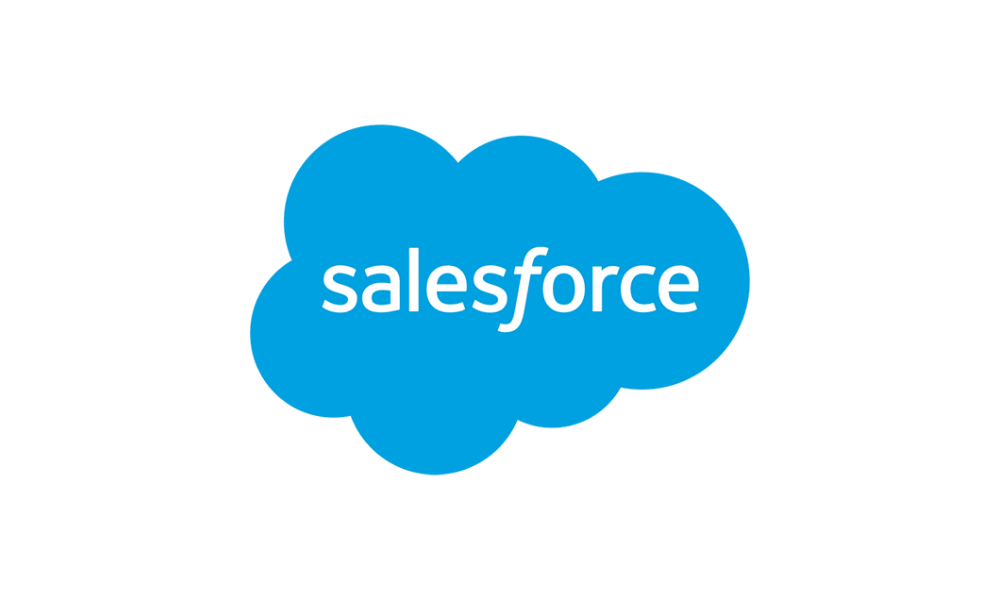
Originally known as Demandware, Salesforce Commerce Cloud was acquired by Salesforce in 2016. This acquisition expanded Salesforce’s reach into the eCommerce domain, offering a more holistic approach to customer engagement by linking commerce with marketing, sales, and service. The platform is designed to be scalable and flexible, catering to the needs of global brands and retailers by enabling them to launch, manage, and personalize their shopping experiences without the complexities of traditional eCommerce platforms.
Salesforce Commerce Cloud has carved out a significant presence in the eCommerce platform market, particularly among mid-sized to large enterprises looking for a robust, cloud-based solution. It is used by a diverse range of industries, from fashion and beauty to electronics and home goods, serving brands like Adidas, L’Oréal, and PUMA. Although it doesn’t boast as wide a user base as some of its open-source competitors, its focus on providing a comprehensive suite of commerce tools has made it a preferred choice for brands seeking to streamline their operations and enhance customer engagement across multiple channels.
Pros of Salesforce Commerce Cloud
- Unified Customer Experience: Integrates with other Salesforce clouds, providing a 360-degree view of the customer across sales, service, marketing, and commerce.
- Scalability: Cloud-based infrastructure ensures scalability, handling traffic spikes and business growth effortlessly.
- Innovative Features: Offers advanced features such as AI-powered personalization, predictive search, and seamless order management capabilities.
- Global Reach: Supports multiple languages, currencies, and customization options for different regions, enabling businesses to expand their global presence.
- Ease of Use: Despite its comprehensive capabilities, the platform is user-friendly, with drag-and-drop tools and visual merchandising interfaces that simplify site management.
Cons of Salesforce Commerce Cloud
- Cost: High subscription fees can be a barrier for small to medium-sized businesses or startups with limited budgets.
- Complexity: While it offers a range of advanced features, the platform’s extensive capabilities can be overwhelming for businesses without a dedicated technical team.
- Customization Limitations: Compared to open-source platforms, Salesforce Commerce Cloud might offer less flexibility for deep customization due to its proprietary nature.
- Integration Challenges: Although it integrates well with other Salesforce products, connecting with external systems or third-party tools can require additional effort and resources.
In conclusion, Salesforce Commerce Cloud stands out as a powerful option for businesses seeking a comprehensive, cloud-based eCommerce solution that can enhance customer experiences across multiple channels. Its focus on integration, scalability, and advanced features makes it particularly suitable for enterprises aiming to consolidate their eCommerce operations and drive growth. However, the platform’s cost and complexity may require careful consideration from smaller businesses or those without significant technical support.
Magento vs Salesforce Commerce Cloud: Detailed Comparisons
In the realm of Commerce platforms, Magento vs Salesforce Commerce Cloud stand as two titans, each offering a suite of powerful features designed to cater to the diverse needs of online businesses. As such, we will delve into the detailed comparisons between the two platforms so that you can finally decide between Salesforce vs Magento, and figure out which one is more suitable for your business.
Features
This comparison delves into the core functionalities, customization capabilities, and unique offerings of both platforms. From Magento’s unparalleled flexibility and extensive customization options to Salesforce Commerce Cloud’s cloud-based efficiency and advanced AI-powered personalization, we’ll explore how each platform shapes the digital retail experience.

Understanding the distinctions and strengths of Magento vs Salesforce Commerce Cloud features is crucial for businesses aiming to make an informed decision that aligns with their strategic goals, operational needs, and growth aspirations in the competitive eCommerce landscape.
Magento
Magento stands out as a robust platform brimming with features that grant store owners unparalleled flexibility and control. It encompasses all the essential elements one would anticipate from an eCommerce platform, including management of products, integration of payment gateways, as well as shipping and taxation options. Additionally, Magento extends its capabilities with features, including but not limited to:
- Multi-store management: enabling the creation of distinct stores each with their own unique branding, product selections, and pricing strategies.
- An advanced checkout process: offering customers the convenience of saving their shipping and payment details for future transactions.
- Product filtering: allowing shoppers to easily narrow down their search according to categories, brands, price ranges, and available discounts.
- Customer segmentation: providing the means to craft personalized offers aimed at specific segments of your customer base.
Salesforce Cloud Commerce
As an also popular eCommerce platform, Salesforce Commerce Cloud covers all the foundational aspects expected of a top-tier eCommerce solution; and beyond the basics, Salesforce Commerce Cloud elevates the retail experience. Salesforce proves to be quite on an equal footing with Magento, offering a plethora of features itself, including but not limited to:
- Einstein: This isn’t about the famed physicist, but Salesforce’s own cutting-edge AI recommendation engine. Leveraging machine learning, Einstein enhances the efficiency of automated marketing efforts and personalized recommendations.
- Product 360: Offers a unified perspective on product information, gathering data, images, descriptions, and reviews from various channels into a single view for comprehensive product management.
- B2B Commerce: Facilitates the processes involved in business-to-business transactions, including contract management, approval workflows, and seamless integration with Electronic Data Interchange (EDI).
- Merchandising and Catalog Management: Assists retailers in the creation, management, and optimization of their product catalogs. It includes tools for handling product variants, incorporating rich media, and applying rules for effective merchandising.
Pricing
When considering Magento vs Salesforce Commerce Cloud, understanding their pricing structures is crucial for businesses planning their eCommerce strategy. Both platforms cater to a range of business sizes and needs, but their pricing models and the potential hidden costs associated with them vary significantly.

This comparison aims to dissect these models to evaluate the overall cost-effectiveness between Salesforce Commerce Cloud vs Magento.
Magento
Pricing Structures
Magento offers two primary editions: Magento Open Source and Magento Commerce.
- Magento Open Source: This edition is free to download and use. It is ideal for small to medium-sized businesses or those with the capability to develop and maintain their site in-house. Despite being free, significant costs can be associated with hosting, customization, and maintenance.
- Magento Commerce: Aimed at larger businesses with more complex needs, Magento Commerce operates on a quote-based pricing model. The cost depends on the annual gross sales revenue and can be quite high, starting in the tens of thousands of dollars per year. This edition includes additional features like customer loyalty tools, targeted promotions, and enhanced performance capabilities.
Hidden Costs and Other Expenses
- Hosting: Magento Open Source requires self-hosting, which can vary widely in cost depending on the chosen service provider and needed resources.
- Customization and Extensions: While Magento’s open-source nature allows for extensive customization, developing custom features or integrating third-party extensions can incur significant expenses.
- Maintenance and Security: Ongoing maintenance and security updates are necessary and may require a dedicated team or external consultants.
Overall Cost-Effectiveness
Magento is potentially more cost-effective for businesses with the technical know-how to manage and customize their platform in-house. It offers a free entry point with Magento Open Source, but businesses must be prepared for the additional costs of hosting, customization, and maintenance. For larger businesses, Magento Commerce offers advanced features at a significant cost, which may be justified by the need for a highly customized eCommerce solution.
Salesforce Commerce Cloud
Pricing Structures
Salesforce Commerce Cloud employs a revenue-based pricing model, which means the cost is directly tied to a percentage of the client’s gross merchandise value (GMV) processed through the platform. This model can be beneficial for startups and smaller businesses as it scales with revenue, but it can become quite costly for high-volume businesses.
Hidden Costs and Other Expenses
Setup and Implementation: The initial setup and customization of Salesforce Commerce Cloud can be expensive, often requiring certified Salesforce partners to implement the platform correctly.
- Additional Functionalities: While Salesforce Commerce Cloud includes many features out-of-the-box, businesses may incur extra costs for additional Salesforce solutions (e.g., CRM, marketing automation) to fully leverage the platform’s capabilities.
- Annual Increases: The revenue-based pricing model can lead to increased costs as the business grows, and contract negotiations may include annual increases.
Overall Cost-Effectiveness
Salesforce Commerce Cloud offers a more predictable cost model that scales with business growth, which can be advantageous for businesses forecasting rapid sales increases. The initial investment may be higher due to setup and implementation fees, but the platform’s comprehensive out-of-the-box features and seamless updates may reduce long-term maintenance and upgrade costs.
Customer Support
When evaluating Magento vs Salesforce Commerce Cloud, it’s important to consider not just the features and pricing of these platforms but also the level of customer support and community resources available. Both Salesforce vs Magento offer distinct approaches to support, influencing the overall user experience and platform manageability.
Magento
Official Customer Support Systems
- Magento Open Source: While there is no official technical support from Magento for the Open Source edition, the vast community of developers and users offers a wealth of knowledge and troubleshooting advice.
- Magento Commerce: Offers official technical support, including 24/7 email and phone support, dedicated account managers for enterprise clients, and a comprehensive knowledge base. This support is part of the subscription fee, ensuring that businesses can get direct assistance from Magento experts for technical issues.
Support Outside of the Platform (User Community)
The Magento community is one of the platform’s strongest assets. It includes a global network of developers, designers, and eCommerce experts who contribute to forums, social media groups, and Magento events. This community is a valuable resource for finding extensions, troubleshooting issues, and learning best practices. Magento also hosts official conferences (Magento Imagine, MagentoLive) that offer networking opportunities and insights into future developments.
Salesforce Commerce Cloud
Official Customer Support Systems
Salesforce Commerce Cloud provides a more uniform support experience across its customer base, reflecting its position as a fully managed, cloud-based platform. Support includes:

- 24/7 Access: Direct access to support teams for technical issues.
- Dedicated Success Managers: Higher-tier plans often come with account managers who help navigate the complexities of the platform, plan upgrades, and optimize usage.
- Salesforce Trailhead: An extensive learning platform with modules and resources for training and best practices.
- Community Forums and Events: Opportunities for users to connect, share insights, and learn from each other.
Support Outside of the Platform (User Community)
Salesforce Commerce Cloud benefits from being part of the larger Salesforce ecosystem, which has a vast and active user community. Salesforce’s Trailblazer Community offers forums, user groups, and events where users can ask questions, share experiences, and gain insights. Additionally, the annual Dreamforce conference brings together the entire Salesforce community for learning and networking. The Salesforce ecosystem’s size and engagement level provide a rich resource for Salesforce Commerce Cloud users seeking advice, solutions, and professional development opportunities.
Hosting
The hosting environments and models of Magento vs Salesforce Commerce Cloud boil down to self-hosted versus cloud-based. This significantly influences their performance and overall management of the server. Understanding the basics between these two types of hosting can make a huge difference in your decision to choose between Magento vs Salesforce.
Magento
Magento offers two main editions: Magento Open Source and Magento Commerce. While Magento Commerce can be cloud-based (Magento Commerce Cloud) as well as self-hosted, Magento Open Source, however, is self-hosted only. This means businesses are responsible for selecting their own hosting environment, which offers flexibility in terms of server choice and configuration but also requires a higher degree of technical expertise. The option between cloud-hosted and self-hosted for Magento Commerce offers flexibility and choices for business as well.
With self-hosted, you can have complete control over the hosting environment, allowing for customized server configurations, and potentially optimizing performance and security. It also enables businesses to negotiate hosting costs directly with providers. However, the responsibility of managing the hosting environment, including security, scalability, and performance optimizations, falls on the business. This can increase the complexity and cost of operations, especially for those without in-house technical expertise.
Salesforce Commerce Cloud
Salesforce Commerce Cloud operates on a cloud-based model, specifically as a Software as a Service (SaaS) platform. This means Salesforce manages all aspects of hosting, including infrastructure, security, and scalability. Customers access Salesforce Commerce Cloud over the Internet without worrying about underlying server management or maintenance.
This offers reduced complexity and lower operational demands, as Salesforce handles hosting. The cloud-based nature ensures scalability, high availability, and security. Businesses can focus more on strategic operations rather than technical maintenance. However, businesses will have less control over the hosting environment. The platform’s cost is typically tied to the business’s sales volume, which might lead to higher operational costs as the business grows.
Integration
Integrating an eCommerce platform with other systems and software is essential for creating a seamless operational flow, enhancing customer experience, and optimizing business processes. Magento vs Salesforce Commerce Cloud both offer extensive integration capabilities, but their approaches and ecosystems differ significantly. Understanding these differences can help businesses choose between Magento vs Salesforce Commerce Cloud to find out which platform best fits their integration needs.
Magento
Ease of Integration with Other Systems and Software
Magento’s open-source nature and extensive API coverage make it highly flexible for integrating with a wide range of systems, including ERP, CRM, PIM, marketing automation tools, and payment gateways. Custom integrations can be developed to meet specific business requirements.
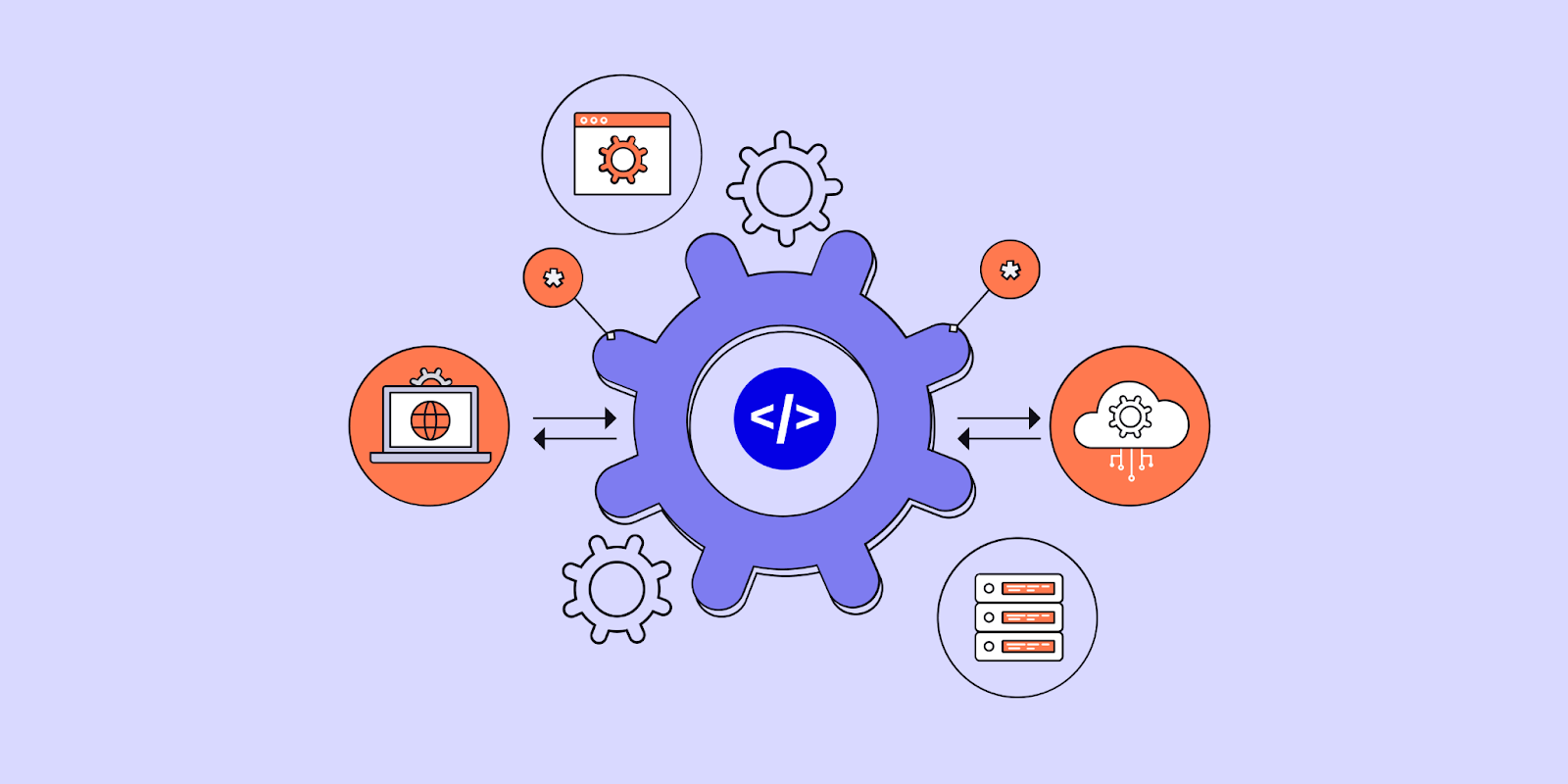
However, while Magento offers robust integration capabilities, leveraging them to their fullest often requires a good deal of technical expertise or the assistance of developers familiar with the Magento framework.
Ecosystem of Third-Party Apps and Services Available
Magento has a vast marketplace offering thousands of extensions and themes. These cover a wide variety of functionalities, from payment and shipping to marketing and analytics. The community around Magento actively develops and supports these extensions, providing businesses with a plethora of options to extend and customize their eCommerce capabilities. The open-source community also means custom solutions are frequently developed, and businesses can tap into a global pool of developers to create bespoke integrations.
Salesforce Cloud Commerce
Ease of Integration with Other Systems and Software
Salesforce Commerce Cloud provides a more streamlined integration process with other Salesforce products, such as Salesforce CRM, Marketing Cloud, and Service Cloud, thanks to its unified platform approach. This seamless integration facilitates a 360-degree view of the customer, enhancing the ability to deliver personalized experiences.
Through its AppExchange marketplace, Salesforce Commerce Cloud offers a range of pre-built integrations with third-party services. These integrations are generally easier to implement, requiring less technical expertise compared to custom integration.
Ecosystem of Third-Party Apps and Services Available
Salesforce’s AppExchange is an extensive marketplace featuring apps specifically designed for Salesforce platforms, including Salesforce Commerce Cloud. While the focus on Salesforce products ensures high compatibility and reliability, the range of third-party apps and services is more curated compared to Magento.
A significant advantage of Salesforce Commerce Cloud is its native integration with other Salesforce products, offering businesses a comprehensive suite of tools for sales, service, marketing, and more. This integration is a key factor for businesses already invested in the Salesforce ecosystem or planning to do so.
Security
In the digital age, where data breaches and cyber threats are increasingly common, the security of an eCommerce platform is vital and thus, cannot be left out of the debate between Salesforce vs Magento. As it turns out, both Magento vs Salesforce Commerce Cloud prioritize security but approach it in distinct ways due to their differing architectures and operational models.
Magento
With Magento, especially in its Open Source edition, the responsibility for security largely falls on the business owner. This includes securing the hosting environment, applying patches, and ensuring that data handling complies with privacy laws such as GDPR. The flexibility and control Magento offers also extend to security, allowing businesses to implement custom security measures and configurations to meet specific compliance or business needs.

Magento releases security patches that address known vulnerabilities and recommends best practices for securing a web store. Magento Commerce customers benefit from additional support and security features, but implementing and maintaining these measures requires diligence from the site owner.
The Magento marketplace also offers numerous third-party security extensions that can enhance protection against spam, fraud, and hacks. However, the security level can vary significantly depending on the extensions chosen and how they’re maintained.
In general, Magento offers more control but requires a proactive approach to security, making it suitable for businesses with the resources to invest in securing their site and who need a customizable security posture. This approach allows businesses to tailor their security measures extensively but comes with the responsibility of regular maintenance and vigilance.
Salesforce Commerce Cloud
Being a cloud-based platform, Salesforce Commerce Cloud provides a managed security model. Salesforce takes responsibility for securing the infrastructure, applying patches, and updating the system to protect against known vulnerabilities. Salesforce has robust policies and practices in place to ensure compliance with international data protection regulations, benefiting businesses that operate globally and need to adhere to stringent data privacy standards.
Salesforce Commerce Cloud comes with a range of built-in security features, including robust access controls, data encryption, and protection against common web threats. Salesforce’s infrastructure is designed to be secure by default, offering peace of mind to businesses.
Salesforce employs continuous monitoring of its systems and has a dedicated security team to address potential threats. The platform’s compliance with various certifications and standards (e.g., PCI DSS, GDPR) is managed by Salesforce, reducing the compliance burden on businesses.
Salesforce Commerce Cloud provides a more hands-off approach to security, appealing to businesses looking for a secure, managed solution without the need for extensive in-house security expertise. The trade-off is less control over specific security configurations, but the benefit is a robust, enterprise-level security posture managed by Salesforce.
Future Prospect
Evaluating the future prospects of Magento vs Salesforce Commerce Cloud involves understanding how these platforms can support business growth over time, especially in terms of scalability and performance. As businesses expand, let’s explore which eCommerce platform – Magento vs Salesforce – is capable of handling increased traffic, more complex inventories, and greater customer expectations without compromising on speed or user experience.
Magento
Magento’s open-source nature allows for a high degree of customization in scaling strategies. Businesses can scale their Magento installation up or down by adding or reducing server resources, optimizing databases, and implementing various performance enhancements. This scalability is largely manual and requires significant technical expertise or external support to manage effectively.

Magento Commerce Cloud offers a more streamlined scalability solution as part of its PaaS offering, including cloud infrastructure that scales dynamically to meet demand. However, the cost and complexity of scaling efficiently can still be significant, especially for rapidly growing businesses.
The long-term performance of a Magento site heavily depends on how well it is set up and maintained. Customizations and extensions, if not properly developed or maintained, can lead to performance issues as a business grows. Regular updates, optimizations, and careful management of resources are required to maintain optimal performance. Magento’s flexibility allows businesses to implement advanced performance optimization techniques, such as full-page caching, image optimization, and database tuning, tailored to their specific needs.
Salesforce Commerce Cloud
Salesforce Commerce Cloud is designed for scalability from the ground up. Being a cloud-based platform, it automatically adjusts resources to meet demand without the need for manual intervention. This scalability is a core feature of the platform, ensuring that businesses can grow without worrying about the technical complexities of scaling their eCommerce operations. Salesforce Commerce Cloud’s infrastructure is optimized for high performance, with a global network of data centers ensuring fast load times and high availability, critical for businesses expanding internationally.
Salesforce Commerce Cloud provides consistently high performance as part of its managed service. Salesforce’s expertise and infrastructure investment mean that businesses benefit from ongoing optimizations, security updates, and performance enhancements without needing to manage these aspects themselves.
Salesforce continuously updates Salesforce Commerce Cloud with new features, performance improvements, and security enhancements. These updates are rolled out automatically, ensuring that businesses always have access to the latest eCommerce innovations without additional development effort.
Flexibility and Customization
When evaluating eCommerce platforms, flexibility and customization are critical factors that significantly impact a business’s ability to tailor the shopping experience to meet unique brand requirements and customer expectations. Both Magento vs Salesforce Commerce Cloud offer different levels of flexibility and customization options, catering to a broad spectrum of business needs. Let’s delve into a detailed comparison of these aspects between Magento vs Salesforce Commerce Cloud:
Magento
Flexibility
Magento, particularly its Open Source edition, offers unparalleled flexibility due to its open-source nature. Businesses can modify the source code to create a highly customized eCommerce experience that aligns perfectly with their brand identity and operational needs.

Magento’s ecosystem is vast, with thousands of extensions and themes available. This variety allows businesses to extend the functionality of their store in almost any direction without starting from scratch.
The trade-off for this level of flexibility is the need for technical expertise. Customizing Magento to fit specific requirements often requires skilled developers familiar with the platform.
Customization
Magento’s architecture allows for deep customization of both the front end and back end, including the checkout process, product attributes, and user experience. This capability is particularly beneficial for businesses with unique product offerings or complex sales processes. The platform benefits from a large global community of developers who contribute plugins, themes, and custom solutions, further enhancing Magento’s customization potential.
Salesforce Commerce Cloud
Flexibility
Salesforce Commerce Cloud offers a different kind of flexibility. Being a cloud-based platform, it provides a range of customization options through a more controlled environment. Businesses can use built-in tools and third-party apps from the Salesforce ecosystem to tailor their site. FCC’s model reduces the need for deep technical expertise for customization, as many adjustments can be made through its user interface or with minimal coding.
While Salesforce Commerce Cloud is flexible, it operates within the constraints of a SaaS platform, meaning there may be limits to how far the platform can be customized compared to an open-source solution like Magento.
Customization
Salesforce Commerce Cloud provides a streamlined process for customization through its modular architecture and the use of cartridges. These cartridges allow for the integration of additional functionalities without altering the core platform, simplifying updates and upgrades.
Customization in Salesforce Commerce Cloud also benefits from seamless integration with other Salesforce products, offering businesses an extensive range of features and capabilities for enhancing customer relationships and backend operations.
Final Thoughts on Magento vs Salesforce Commerce Cloud
After a comprehensive examination of Magento vs Salesforce Commerce Cloud across various dimensions — including key features, pricing, customer support, hosting, integration, security, future prospects, flexibility, and customization — it’s clear that each platform offers distinct advantages tailored to different business needs and operational capacities.
Key Points Summary
Features
Both Magento vs Salesforce Commerce Cloud offer a plethora of features that are tailored to the needs of the business. Magento plays its strength in its features for multi-store management, while Salesforce Commerce Cloud makes its mark with Einstein – their own AI system.
Pricing
Magento offers a free, open-source version, appealing to businesses looking to minimize upfront costs, with scalability that can lead to additional costs for hosting, customization, and maintenance. Salesforce Commerce Cloud operates on a revenue-based model, potentially offering a lower entry cost for small businesses but increasing as sales volume grows.
Customer Support
Magento provides community-driven support for its Open Source edition and professional support for Commerce customers. Salesforce Commerce Cloud offers comprehensive, managed support across all its plans, beneficial for businesses requiring consistent, high-level assistance.
Hosting
Magento offers flexibility with self-hosting for its open-source edition and cloud hosting for Commerce Cloud, requiring more involvement in infrastructure management. Salesforce Commerce Cloud’s cloud-based model offers a hands-off approach to hosting, emphasizing ease of use and scalability.
Integration
Both platforms support extensive integration capabilities, with Magento offering a vast ecosystem for customization and Salesforce Commerce Cloud providing streamlined integration, especially within the Salesforce ecosystem.
Security
Magento requires businesses to actively manage and implement security measures, whereas Salesforce Commerce Cloud provides a managed security model, reducing the burden on businesses.
Future Prospects
Magento allows for significant scalability and performance optimization but requires considerable effort to manage growth effectively. Salesforce Commerce Cloud offers built-in scalability and performance enhancements, suited for businesses planning for rapid expansion without extensive technical overhead.
Flexibility and Customization
Magento excels in providing deep customization options, ideal for businesses with specific requirements. Salesforce Commerce Cloud offers a balanced approach, catering to businesses looking for customization within a managed environment.
Recommendation
Choose Magento if:
- Your business requires deep customization and control over the eCommerce environment.
- You have access to technical resources to develop and maintain a highly tailored online store.
- You are looking for a cost-effective solution with flexibility in hosting and scalability.
Choose Salesforce Commerce Cloud if:
- Your business values ease of use and a managed service over deep customization.
- You require a platform that scales seamlessly with your growth, without the need for significant technical intervention.
- You are already using or planning to integrate with other Salesforce products, benefiting from the unified ecosystem.
Conclusion
Magento vs Salesforce Commerce Cloud is the debate between two eCommerce platforms that cater to distinct market segments with their unique sets of features and capabilities. The choice between Salesforce vs Magento should be guided by your business’s specific needs, technical capabilities, growth plans, and budget constraints. Magento is well-suited for businesses that prioritize customization and control and are prepared to manage the complexities of an open-source platform. In contrast, Salesforce Commerce Cloud is ideal for businesses seeking an easy-to-use, scalable, cloud-based solution with strong support and integration within the Salesforce ecosystem, offering a more streamlined approach to eCommerce.
If you love our sharings and would like to be updated with similar content from Magenest, please consider subscribing to our newsletters right below.


